Q&A with Dave Hunter
I spoke with the producer of "The Singles Ward," "The Best Two Years," and countless other films that formed the backbone of Latter-day Saint comedic cinema during the early 2000's.
My interview this week is a little different than usual — I typically choose to highlight filmmakers who work in the mainstream Hollywood entertainment industry. But Dave Hunter is the producer who put the LDS comedy genre on the map with the 2002 hit The Singles Ward, and his production company HaleStorm Entertainment followed it up with essentially every church-based comedy you’ve ever heard of: The R.M., Sons of Provo, Mobsters and Mormons, and Church Ball, to name just a few. He also produced the extreme stunt television show Nitro Circus and the 2015 Lionsgate film Don Verdeen, starring Sam Rockwell and Jermaine Clement. With producer credits on nearly every LDS comedy between 2002-2013, Hunter’s impact on the look, tone, and legacy of Latter-day Saint cinema cannot be overstated.
Let’s start at the beginning. Tell me about your career in the movie business. What are some of the films you’ve worked on and how have you been involved?
I was born and raised in San Jose, California, in 1988. I went to BYU, and I was planning on going into pre-law. I wanted to either be a sports agent or an entertainment agent, and I thought law school would be the way to do it. One of my lifelong best friends is a guy named Kurt Hale, and he convinced me to go to film school instead. And it took me ten years to get out of the BYU film program, because I started a real estate development company when I was at BYU. It just blew up and we had a lot of success early on. And so by the time I was about 30 years old – this takes us to the year 2000 – I call my buddy Kurt, who was the one who’d convinced me to go to film school. He’d gotten some regular desk job. So I said, “Hey, Kurt, if you'll quit your job, I'll pay you a salary and we'll go make movies.” So he comes over, we start snowboarding and motorcycle riding every day talking about movies and what are we going to do? And one day, a film school buddy of ours named John Moyer comes into the office and he says, “Hey, I have this. It's an autobiographical script about my life, and it's called The Singles Ward.”
And I said, “There's no way we're going to do a Mormon movie.” But then we started thinking about it. We thought, you know what? This is an independent film. We know where all the Mormon bodies are around the world, and we can probably get into a lot of these places. This might not be a terrible idea. So we scratched together the money, shot the whole thing on 35 millimeter film, and got it into ten local theaters. And that movie blew up. It made over $1 million at the box office on this micro-budget film.
Do you remember what the budget was?
The budget was $425,000; I remember to the penny. And we also did a soundtrack. We did all of these hymns and primary songs. We made them into rock’n’roll and rap albums and that was bigger than the movie. That album was just a monster. It did incredibly well, and we were off to the races. We got [The Singles Ward] distributed in theaters. We got it distributed at Walmart. We were selling albums. We were building out this distribution channel. So let let's make another one!
So the next one we did was The RM. And then we went on to do pretty much all the rest. We either executive produced, produced, or distributed any Mormon film of any import that came out for the next decade, outside of the Richard Dutcher stuff. We had our fingerprints on it somewhere.
Did you think that The Singles Ward was going to land the way it did?
You know, it was the first film of its kind. Nobody had ever done anything remotely close to Mormon comedy. I mean, in the ‘30s or ‘40s, somebody had done some terrible Brigham Young movie. There'd been a couple of movies about Porter Rockwell, and Dutcher had done God's Army, and that was pretty much the landscape of Mormon cinema. So not only was it very pioneering, it was a little nerve wracking, but when we made it, just being on set and seeing people laughing, the cameos that we had, and the people that were in it, and the media interest we had on the film, we were pretty confident going into it that it was going to do okay. It’s the movie I’m the most proud of; it was my first feature film. That's the one that literally took every favor, every cousin, every aunt, every human that I knew that would give me $2. It was such a monumental effort to get that film off the ground that it was probably the most satisfying, because it was so hard. You know, whether or not it was the greatest film, I have no idea. But it was an absolute riot and we had a great time.
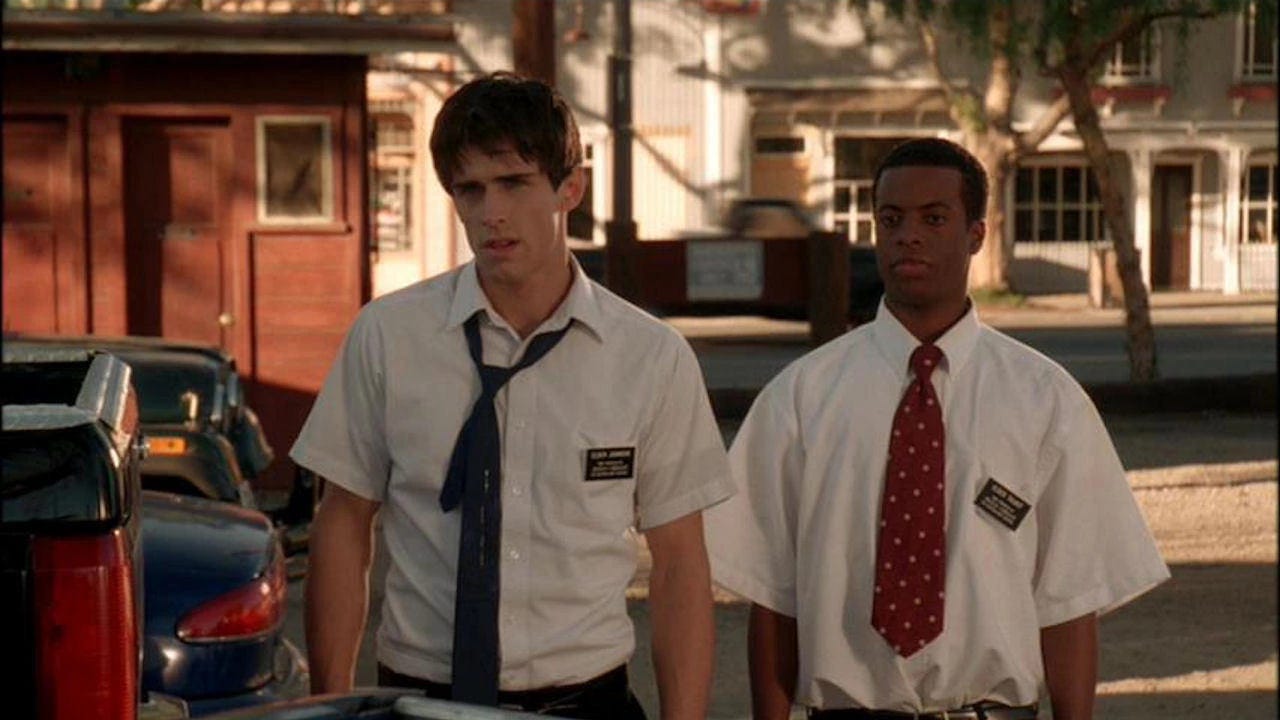
After those films I went on to have a show on MTV called The Nitro Circus. And then we made it into a big, giant 3D film, but it was with the top action sports athletes in the world, and we literally circumvented the globe for a couple of years shooting this monstrous stunt film. And that’s really more my style. If you asked me what my dream job was, I’d say, “Making extreme sports movies.” It was a total riot. And that went on and spawned a live show, and that live show still goes around the world today. We’ve been running for 10 years and we sell out every stadium that we've ever gone to.
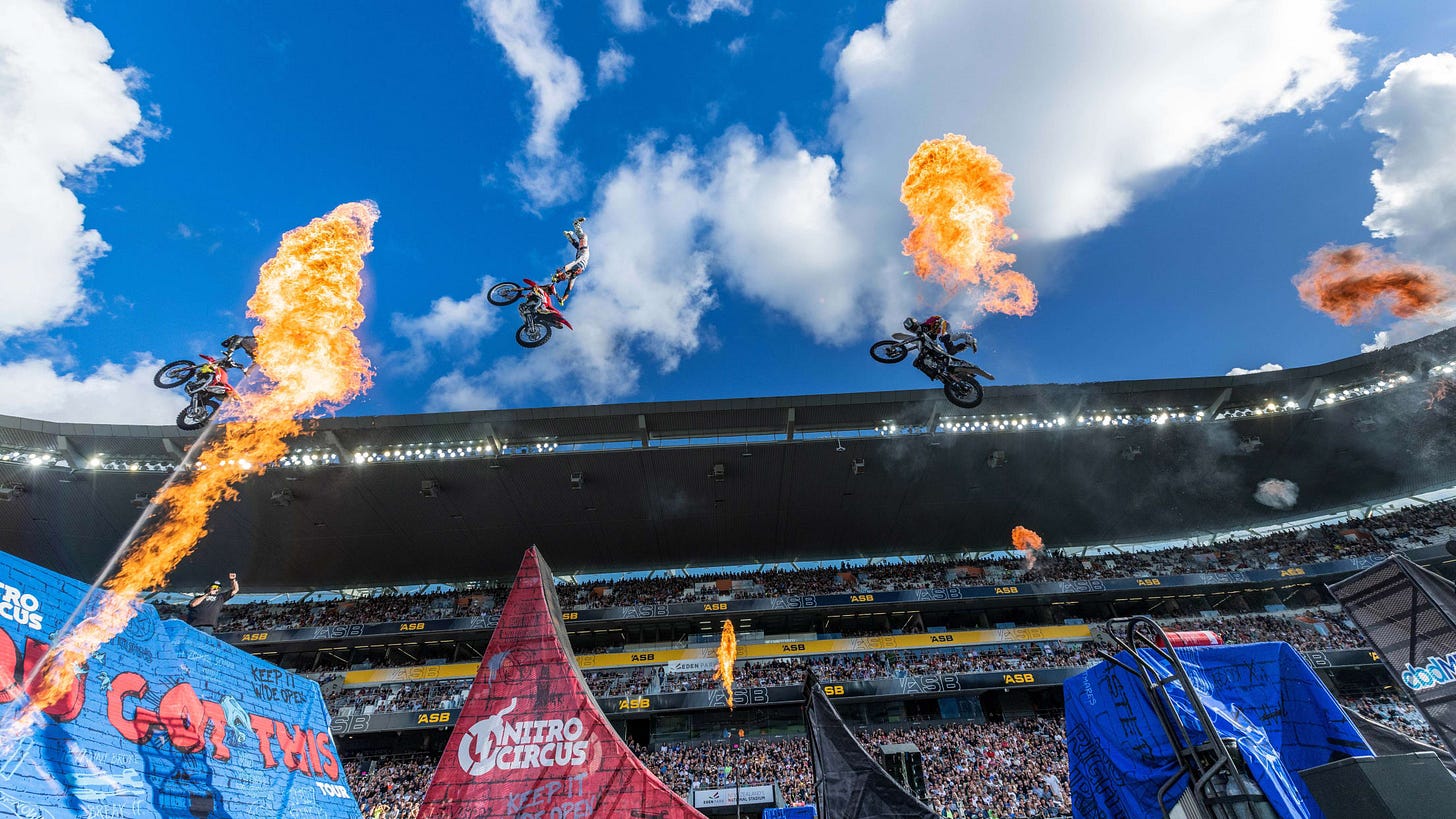
You were the producer of Nitro Circus – what exactly does being a producer entail?
A producer is the person that’s in charge of everything. They're the guy that hires the director. They find the money, they find the script, they get the actors, they figure the whole thing out. They plug everything together, and then they pray that it works. The great distinction is that a producer is the person that puts the whole thing together, is in charge of the entire thing, and then it is with you the rest of your life. I still have to field the calls on everything that we've ever done as far as royalties and legal things and blah, blah, blah. If you're a director or an actor, you come in for the moment, you shoot it, direct it, act in it, and when it's done, you literally walk away and you're on to the next thing. When you're the producer, you're tied to it the rest of your life. You're that parent, and the kid never really leaves.
Tell me about a particularly crazy location shoot or a particularly gnarly stunt that you had to set everything up for.
Oh my gosh, there were so many. The United States wouldn't let us do some of the [Nitro Circus] stuff in the United States. So we took it to Panama. We were jumping big wheels between 65 story buildings with no safety nets and hitting 100 foot gaps on big wheels. And if you missed it or you came up short, you hit the side of the building and dropped 70 stories to your death. Travis Pastrana, the biggest action athlete in the whole world, we pushed him out of a plane at 15,000 feet without a parachute. He only had board shorts on, and another plane came by and some guys jumped out of that plane, and they went and tried to catch him. And when they caught him, he had a harness on, and he clicked into his harness and pulled the chute. Travis didn't have a parachute until that point. So we did lots of stuff like that. I mean, every one of our stunts was that big. It was all pass or fail. It was all black and white. You either lived or you died and there was no middle ground.
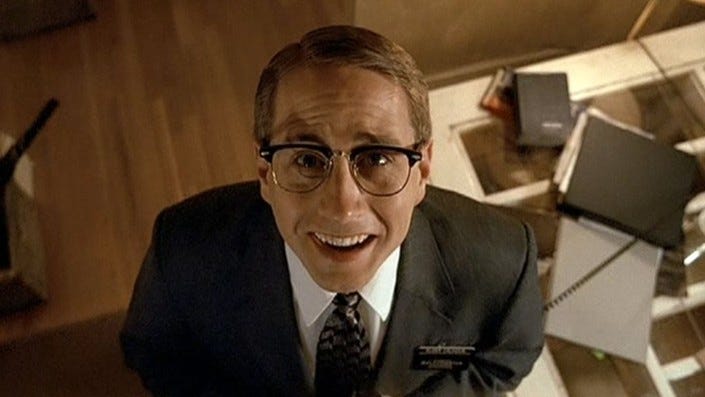
Wow. I’ve got to imagine that drafting the contracts for something like that is a very intense experience. Changing gears a little bit, I’m curious what role your faith has played in making your films and working in this industry.
That is a really interesting question. And I truly don't know what the answer is because I probably should be a lot more faith-based or spiritually based in a lot of the decisions I make as far as it goes with my career and my personal stuff. I don't know. It’s not like I was praying and saying, “Hey, God, should I do Mormon comedies?” It was faith that drove me into that, and I’m still all in, I’m a man of faith. But it’s not like faith played a big role in my career choice of making movies. My faith sits in one bucket, and things that pertain to my family and things that are important to me go into that bucket. But film was always kind of something that I did that I loved, that I was passionate about, and it was fun, but it wasn't my career and it wasn't how I was providing for my family. It was something to do on a Tuesday morning, and let's go have some fun. And so I would say that faith didn't play a huge role in it. But then we make a movie like The Singles Ward and I remember getting letters, handwritten letters from people saying “This movie has changed my life.” Or, “I've been reactivated because of this movie.” And I never understood those letters. I was always like, what the hell? [laughs] I don't get it. Like, that was a comedy. How did that inspire you to gain your testimony and go back to church? I never quite saw the correlation, but I’ll take it. That's a win, and it’s great that somebody saw something of value in it that they put in their personal lives and changed their life.
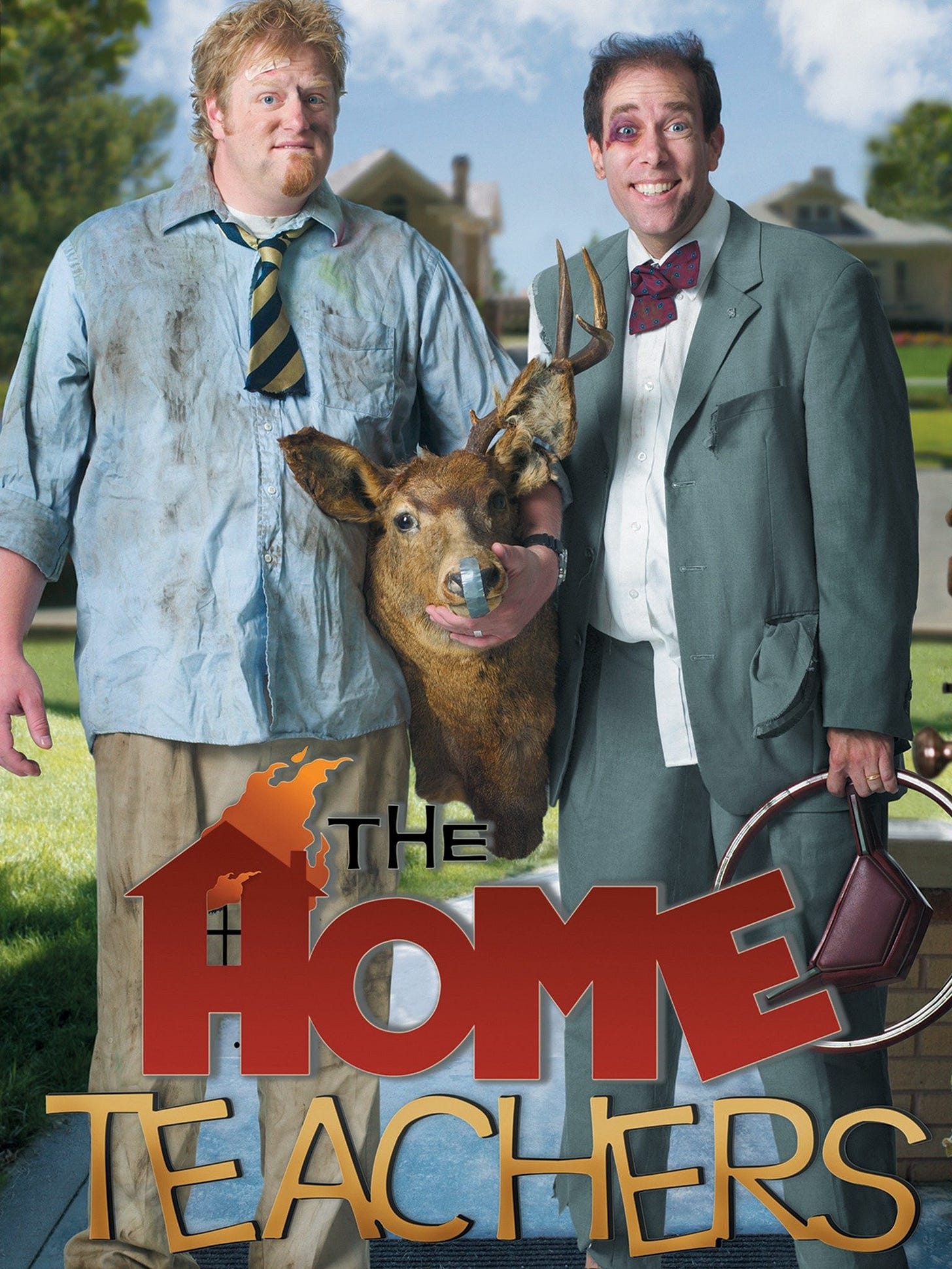
I think it's interesting that the one genre of LDS film that has taken off has been comedy. And I guess I wonder if it's that we, as Latter-day Saints, have this tendency to be self-deprecating so that we make ourselves the punchline before someone else can?
It's crazy to think that Mormons, not Mormon cinema, but Mormons in media are having this cultural moment. There was Heretic with Hugh Grant. They have that Peter Berg show [American Primeval] on Netflix right now about the Mountain Meadows Massacre, which is the number one show on Netflix right now. You've got these massive titles that are coming out that have Mormon characters and they're being made by non-Mormons. I watched that Peter Berg one and, obviously it's completely and totally unflattering to the Mormon church, but it is pretty interesting and well shot. But I don't think a Mormon could have ever gone in and pitched that and got it made. It's funny that the Mormons can't get their own stories told in a big way. It has to be the outsiders with their outsider perspective that are putting that out in film.
I wonder what it would take to see a sort of sea change in that regard, because I think it would be interesting to see an LDS perspective.
Then again, you might be too close to it to make that film. Given the subject matter it would be very hard for a Mormon filmmaker to make, but I think a Mormon angle, a non-biased Mormon angle on [American Primeval] would have made it better, because it is really negative towards the Church. We’re talking about ignoring the fact that [the pioneers] had been booted and kicked out of Nauvoo, and all of our women had been raped and killed, and we'd trekked halfway around the country just to be alone. And then people start showing up. It's still completely wrong what those people did. On that I'll never give you a pass. But at least there'd be context to it, you know. I think an actual Mormon perspective is the missing context that could have reshaped that entire story, and it would have made the storytelling, I think, a little richer and more well informed.

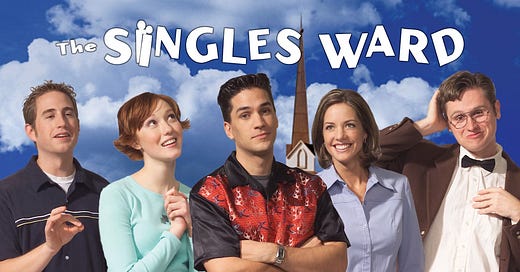




“This is Elder Elder’s elder sister, Sister Elder!”
On my mission in Texas we had a virtual devotional with Kirby Heybourne. One of the Elders on the call took the opportunity to tell him that he started meeting with the missionaries after watching The Best Two Years. This guy decided to be baptized and serve his own mission soon afterward.
So yeah, the impacts of those early 2000s church comedies stretch way beyond what I would have expected